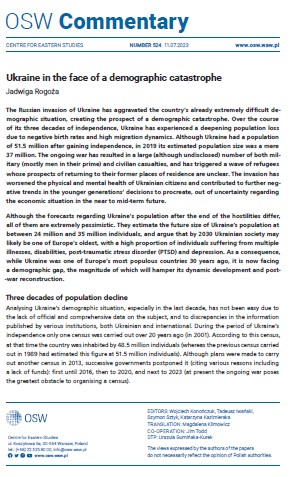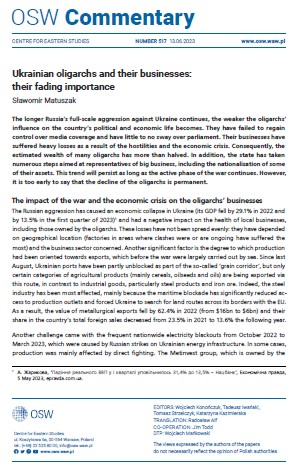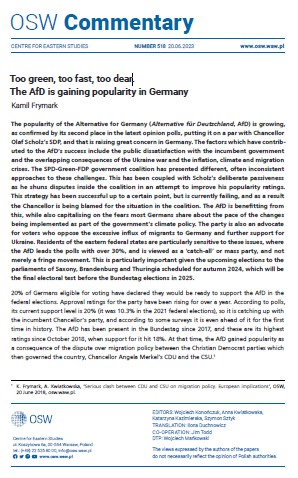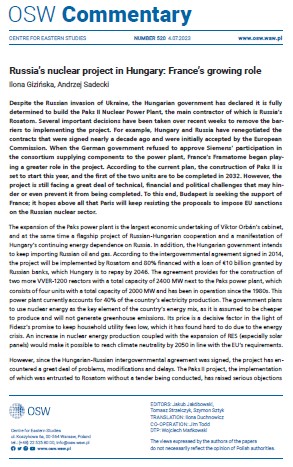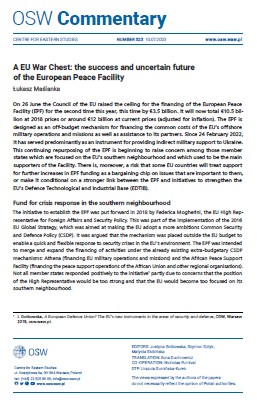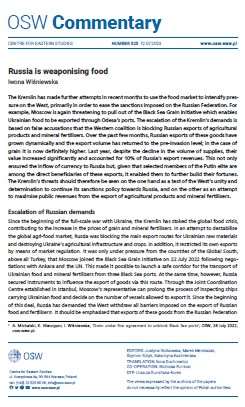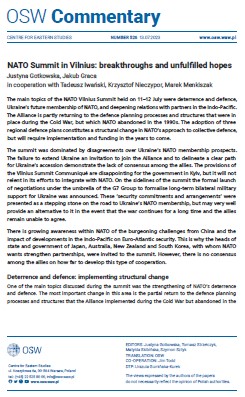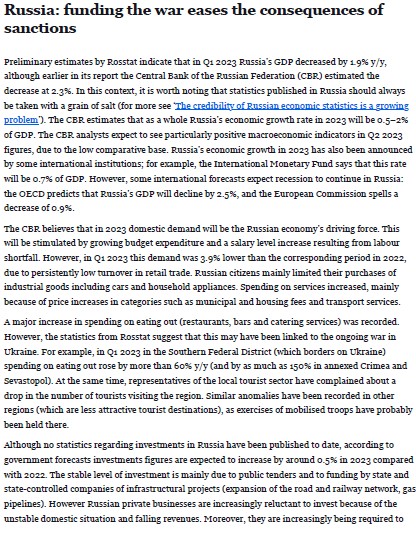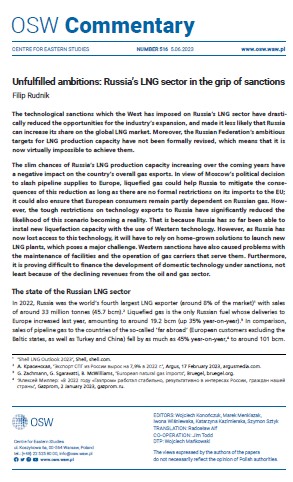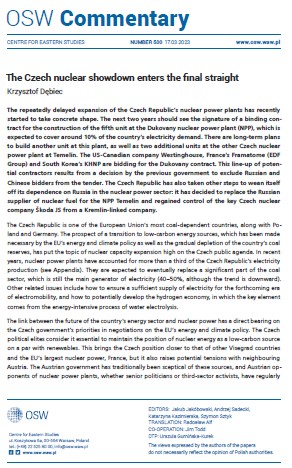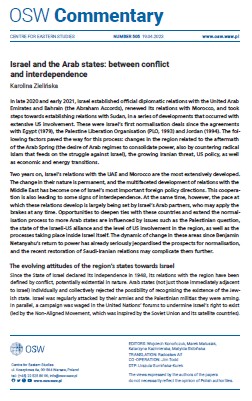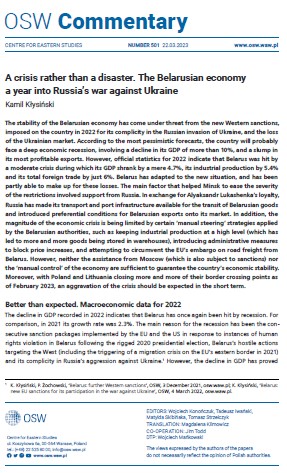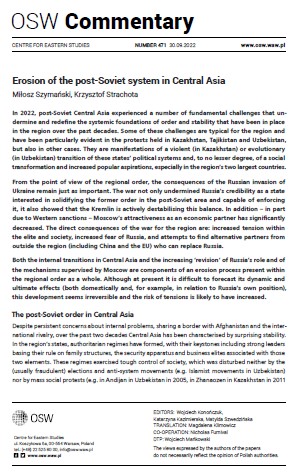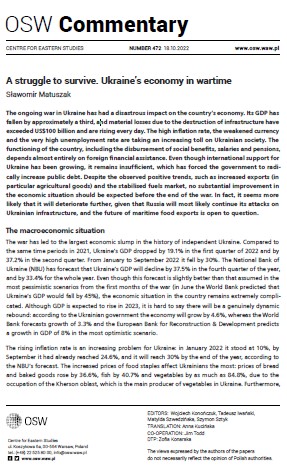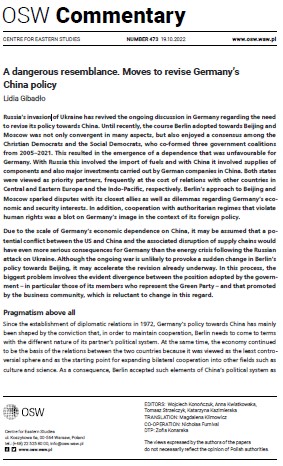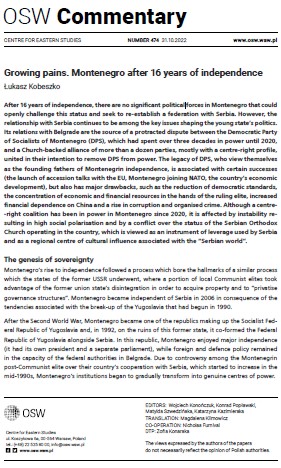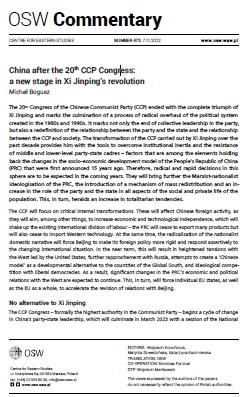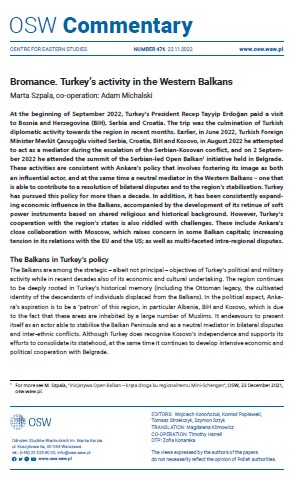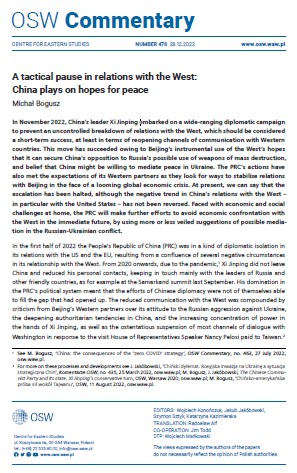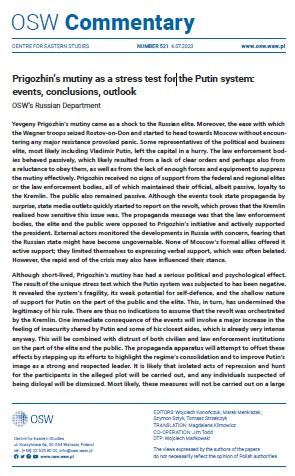
Prigozhin’s mutiny as a stress test for the Putin system: events, conclusions, outlook
Prigozhin’s mutiny as a stress test for the Putin system: events, conclusions, outlook
Keywords: Yevgeny Prigozhin; mutiny; Russia; Putin's regime; threat;
Yevgeny Prigozhin’s mutiny came as a shock to the Russian elite. Moreover, the ease with which the Wagner troops seized Rostov-on-Don and started to head towards Moscow without encountering any major resistance provoked panic. Some representatives of the political and business elite, most likely including Vladimir Putin, left the capital in a hurry. The law enforcement bodies behaved passively, which likely resulted from a lack of clear orders and perhaps also from a reluctance to obey them, as well as from the lack of enough forces and equipment to suppress the mutiny effectively. Prigozhin received no signs of support from the federal and regional elites or the law enforcement bodies, all of which maintained their official, albeit passive, loyalty to the Kremlin. The public also remained passive. Although the events took state propaganda by surprise, state media outlets quickly started to report on the revolt, which proves that the Kremlin realised how sensitive this issue was. The propaganda message was that the law enforcement bodies, the elite and the public were opposed to Prigozhin’s initiative and actively supported the president. External actors monitored the developments in Russia with concern, fearing that the Russian state might have become ungovernable. None of Moscow’s formal allies offered it active support; they limited themselves to expressing verbal support, which was often belated. However, the rapid end of the crisis may also have influenced their stance.
More...
